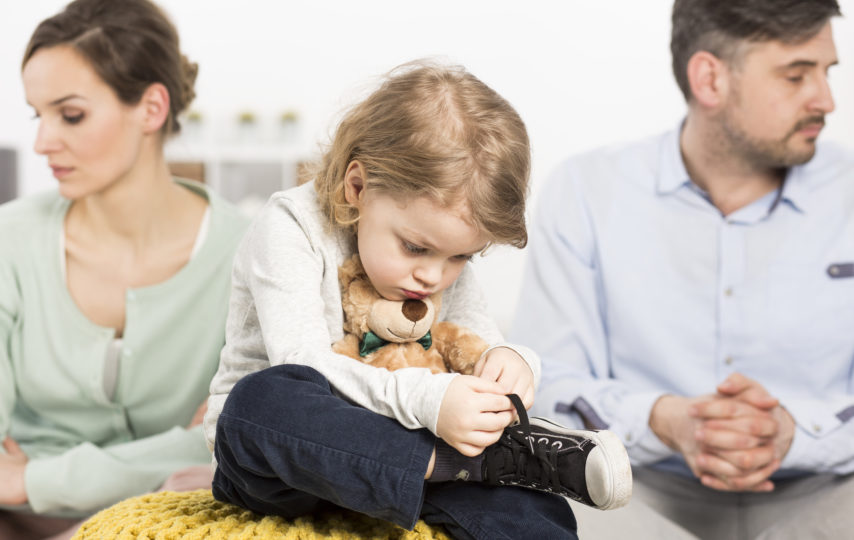Going through a divorce is a difficult situation that many families must contend with. While the divorce rate has fallen to 14.9 per thousand in recent years, many families will still wind up splitting. However, as difficult as getting a divorce is, no one is prepared for the aftermath.
After a divorce, you’ll have a host of other concerns. Living situations, bank accounts, debts, and most importantly, custody arrangements. Even once the divorce finalizes and a custody agreement gets reached with the assistance of a skilled custody attorney, you’ll still have to find ways to co-parent your children with your former spouse and help them cope.
If all of that sounds overwhelming, don’t despair. Here are ten tips to help you raise and co-parent your children after you get divorced.
1. Put the Children’s Needs First
This ought to go without saying, but as co-parents, you should always put your children’s needs first.
Look, we get it. Divorces are a difficult experience for everyone. Depending on your circumstances, there may be some hurt feelings or trauma left unresolved. However, you do no one, least of all your children, any good if you ignore their needs or wants over your own hurt feelings.
If this means going to therapy either alone or as ex-partners, then so be it. Don’t let your ego be the reason your children suffer.
2. Embrace Ongoing Communication
If you and your ex-spouse intend to co-parent your children successfully, you need to embrace continuing communication with them. We understand that texting your ex is the last thing you want to do. However, only speaking to one another when things get bad is a recipe for a communications breakdown and a custody nightmare.
Staying in touch with one another helps you and your ex keep a consistent environment for your children, so they don’t have to live two separate lives. It also ensures you’re on the same page as one another (more on that below).
3. Don’t Badmouth or Undermine Your Co-Parent
Again, this should go without saying, but no matter how badly your ex hurt you, you should let your children come to their own conclusions. Don’t stand there and badmouth your ex to anyone who will listen, especially in front of your children. In addition, if your co-parent sets a specific rule that they expect to be followed, don’t undermine their authority when in or near their place.
We realize how difficult this is, especially in cases of abuse. We understand the desire to protect your children from someone who may only hurt them. However, if they’ve bought into the abuser’s facade, you speaking ill of them will only reinforce the seeds planted in their minds by your ex that you’re the problem.
Let your children come to their own realizations and conclusions. Keep safety at the front of your mind, but save your healing process for your therapist.
4. Stay on the Same Page
This is one of the most important child custody lawyer tips out there. You and your partner should stay on the same page about anything major.
Some kids will not hesitate to use the fact that you two have separate house rules in an attempt to manipulate you. If you don’t have the same parenting style and can’t stay on the same page that way, make sure you establish to your child that your rules apply in your home.
However, whether your parenting styles mesh or not, you should stay on the same page for anything like school enrollment, medical decisions, and other major upbringing factors. If you cannot come to an agreement for some personal reason, refer back to rule number one, and make sure the child’s best interests are your focus.
Pick your battles. Don’t turn every minute difference in parenting styles into an all-out war. It only makes it harder to come together for the big things.
5. Don’t Neglect Self-Care
We’ve spoken so much about putting the children first to this point that you might think you have no place in any of this. That couldn’t be further from the truth. In fact, it’s critical that, after a divorce, you put self-care higher on your priority list.
Let’s think about this logically. If you’re neglecting sleep, food, and personal hygiene, you’re neither feeling nor thinking your best. If you can’t make good decisions, you’re more likely to give in to anger and other petty impulses. If you do that, then your ex-partner may well retaliate, worsening things between you.
Take time to yourself. Go to therapy, enjoy a nice, relaxing bath, or do whatever sparks joy in you when you don’t have the kids. This will let you stay sane when stressful times come.
6. Consider How to Welcome a New Partner
We understand how important it is to make a new partner feel welcome to your family. We understand how excited you might be to bring them into your parenting decisions. However, we must strongly advise that you wait until the new partner’s position in the family becomes stable and secure before you open the conversation with your ex about their role in any major decisions for your child.
You should also take care when introducing your child to your new partner, as there may be feelings of despair or resentment from them afterward. Give them time to process how they feel about you dating again, and sit down to chat with them about their feelings if it becomes a problem.
7. Make an Effort to Stay In Touch
Whether you’re on the outside looking in as your ex has sole custody, or don’t have the kids this week in a joint custody arrangement, you should make an effort to stay in touch with your kids. Don’t ignore them because your ex is looking after them this week. Stay involved in their lives and try to see what they’re up to.
If you don’t make an effort to stay in touch, your children may feel like you’re abandoning them because they’re with your ex. This upsets everyone involved. If you stay in touch or try to, then your children at least know you care about them.
8. Don’t Force Your Child to Choose
Sometimes, you and your partner come to irreconcilable differences. It’s unfortunate, but that’s how it is in an acrimonious divorce. However, no matter what you do, don’t put your child between you and force them to choose sides.
If you or your ex use your child as a weapon against each other, you’re setting your child up for cognitive dissonance and loyalty conflicts. You’re also setting a precedent that it’s okay to use something you both care about as a tool when things aren’t going well. This is neither a positive thing to teach your child, nor a healthy mechanism for them to develop.
If any sides get chosen, they will be chosen by the child of their own accord. Not because you or your ex-partner gave them an ultimatum.
9. Consistency Is Key
While we’ve established that parenting styles may differ from home to home, you should try to ensure consistency wherever possible. That means making sure you and your ex adhere to the parenting schedule set in your custody agreement.
Even if you can’t keep consistent rules between homes, remain consistent in enforcing your own home’s rules. Don’t let a misguided sense of guilt over putting your child through all this lead you to be lenient. If your child’s acting out and breaking rules, they still must face consequences for doing so.
If your child’s doing poorly in school, you need to be there to assist them. Celebrate their successes, but also help them through their failures. Keep your presence consistent, and your child will adjust much better to the circumstances.
10. Practice Empathy Before All Else
Last, before you do anything else, make sure you practice empathy. Empathy towards your child, first and foremost, but also, empathy towards your ex. Try to understand that this is a difficult time for all of you.
Your child may lash out at you or your co-parent while they try to process their feelings. They may close themselves off in an effort to shut you out and heal alone. They may try to pick up some perceived slack and over-function. Whatever your child does, meet them where they sit with empathy and grace.
Hear out what your child has to say about the divorce, and listen to what your ex has to say as well. If you practice empathy towards both parties, then you’ll be raising kids on the same page in no time.
Feeling Overwhelmed After a Divorce? You Aren’t Alone
It’s only natural to feel overwhelmed after a divorce. You and your kids have been through a tumultuous period of moving to a new house, potentially new schools or states, and processing the emotional fallout of the end of a relationship. However, if you put communication and empathy first, both with your kids and your ex, you’ll be able to co-parent successfully.
If you found these tips about raising kids after a divorce helpful and would like to read more articles like this one, check out our blog daily for more!













